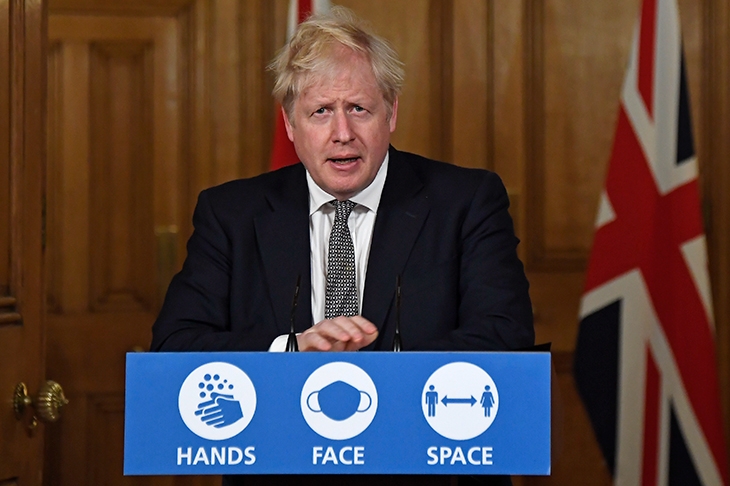Boris Johnson looked unhappy, as well he might, standing at his indoor lectern last Saturday to announce the new lockdown: ‘In this country, alas, as across much of Europe, the virus is spreading.’
He said alas a couple more times during the conference. Normally such a word belongs to the sprinkling of slightly absurd phrases that garnish his speech like particularly curly parsley. But, Ichabod, the fun has departed. Alas, there is less and less irony in saying alas.
The Prime Minister is doubtless aware of the classical origin of alas in lassitudo, Latin for weariness. Lassitude came into English in the 16th century. Francis Bacon, the Jacobean Lord Chancellor, not the masochistic painter, wrote: ‘Lassitude is remedied by bathing or anointing with oil and warm water.’ This seems optimistic.

Get Britain's best politics newsletters
Register to get The Spectator's insight and opinion straight to your inbox. You can then read two free articles each week.
Already a subscriber? Log in







Comments
Join the debate for just $5 for 3 months
Be part of the conversation with other Spectator readers by getting your first three months for $5.
UNLOCK ACCESS Just $5 for 3 monthsAlready a subscriber? Log in